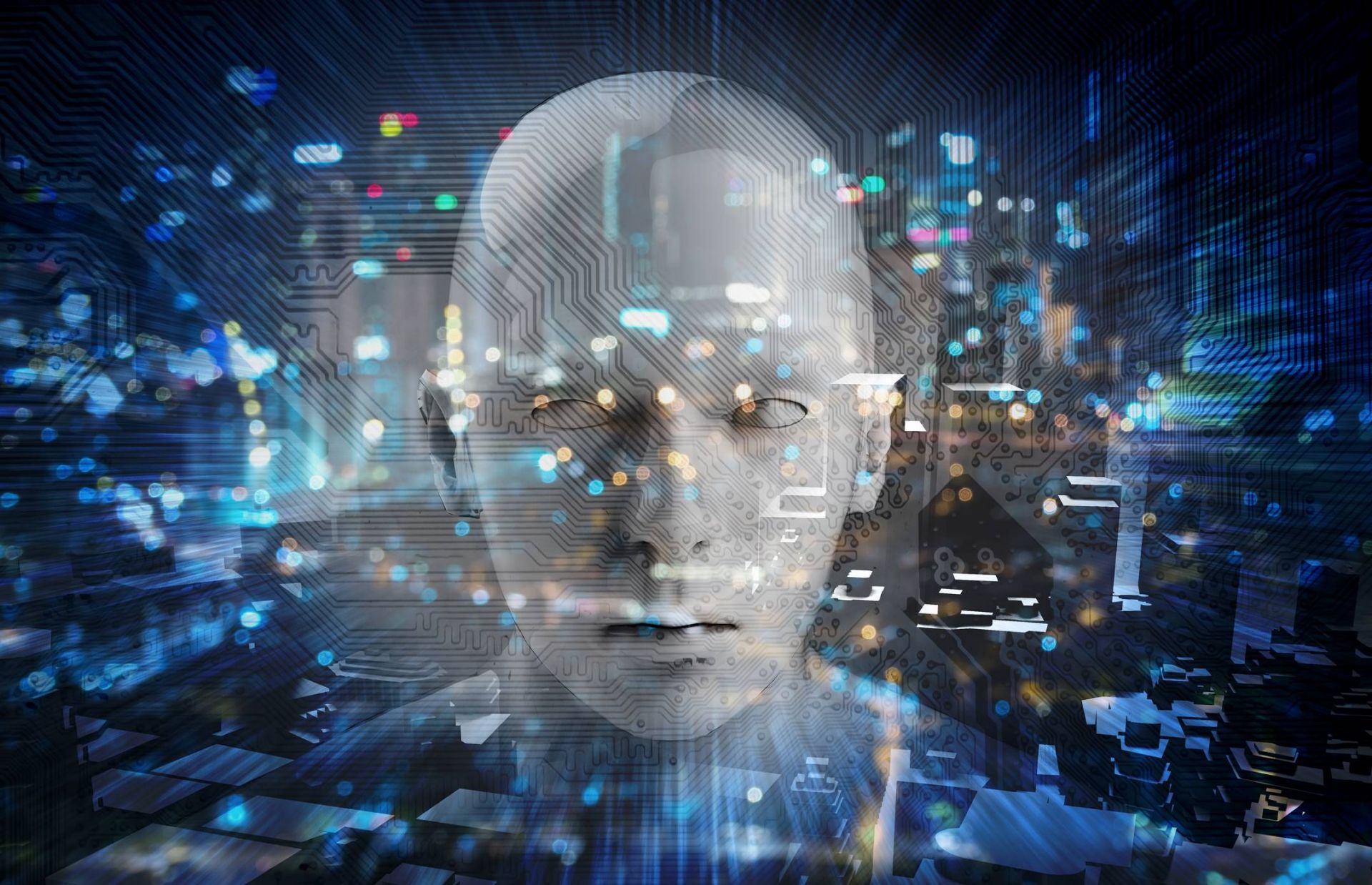
Automation, AI and the fourth industrial revolution
Will automation and artificial intelligence lead to a “brave new world” in which machines free us to work more creatively – or one in which many jobs are rendered obsolete? From the recent New Frontiers conference to a series of forward-looking reports, Barclays has been at the forefront of this discussion. We report on how the bank is thinking about “the fourth industrial revolution”.
“We have evolved and created something amazing,” said Justin Lyon, CEO of simulation platform Simudyne. “We can create something even better if we recognise our limitations as humans. We’re not usurping ourselves, it’s collaboration.”
“I vote dystopia,” responded Patrick Chung, Founding Partner of Silicon Valley venture capital firm Xfund. “Why do you find it a comforting idea for machines to make all our decisions?”
The two men were discussing the theme of the moment – Artificial Intelligence (AI) – at the Barclays New Frontiers’ conference last month, a day of events exploring how new technologies and ways of working will impact business and financial services.
When the most mechanical parts of our brains get outsourced, that means a premium is placed on the non-mechanical, creative parts
Another participant, Andy Stanford-Clark, Chief Technology Officer for IBM UK & Ireland, found a middle ground. “We tend to think of AI as ‘augmented intelligence’ not ‘artificial intelligence’, so it’s the computer augmenting the skills of the person,” he said. “Businesses who use AI don’t shrink in terms of manpower, because they become more profitable and productive and need to hire more people to fill in other jobs in the corporation. Automated jobs grow companies who need people.”
The conversation on the stage at the London conference reflected a recent Barclays report, ‘AI: a new age of Intelligent Banking (PDF 505KB)’, which found that the application of AI in financial services could be “game-changing”. “From automated credit scoring to digital financial assistants and fast, accurate expense reporting, there are numerous ways machine learning is already having an impact,” wrote George Osborne, Innovation Director for Barclays Global Transaction Banking, in the report.

“AI is already being built into a range of processes across the industry – from customer support to cybersecurity, insurance and predictive analysis, as well as in the creation of automated virtual assistants.”
The report concluded that as technology becomes smarter, the need to continue investing in managing risk increases. But back at the New Frontiers conference, Lyon, whose company Simudyne is a graduate of the Barclays Accelerator, powered by Techstars, predicted a world where “taking models and codifying them as algorithms, you can make vastly better decisions than the majority of fund managers. It heralds a brave new world for us where we’ll make radically better decisions by collaborating with our machines.”
Patrick Chung saw this as “a new renaissance of creativity and lateral thinking. When the most mechanical parts of our brains get outsourced, that means a premium is placed on the non-mechanical, creative parts”. Discussing the impact of automation on the job market, Lyon said: “Yes, it’s absolutely coming for jobs. It’s coming for your jobs, for strategic decision makers, for risk managers, fund managers, not just robots in factories”.
Speculating on AI’s wider impact, he continued: “These technologies could be used for dystopian or utopian futures. I do think that our society has to fundamentally change. The state will have to step in to manage the process, whether with universal basic income, or health provision for those locked out, and it’s going to be incredibly difficult.”
The way manufacturing businesses are adapting to the change – dubbed “the fourth industrial revolution”(4IR) – was recently tackled in a Barclays report on ‘Intelligent Manufacturing’. The report found that the new revolution “meshes industrial processes with breakthroughs in advanced technologies such as data management, machine learning and the Internet of Things”.
Artificial intelligence heralds a brave new world where we’ll make radically better decisions by collaborating with our machines
Reflecting Andy Stanford-Clark’s thesis that “automated jobs grow companies that need people”, the report saw potential for 15% sector growth within a decade, creating over 100,000 new manufacturing jobs, but warned: “If the UK’s investment in 4IR trails behind other advanced economies, our modelling sees significant financial and economic penalties.”
A survey quoted in the report found that four in five UK manufacturing businesses identified at least some potential for further commitment to automation. Those who had already invested in 4IR technologies responded that they had seen improved productivity (51%), reduced costs (45%) and better use of staff time (32%). But the report, authored by Barclays Head of Manufacturing, Transport and Logistics, Mike Rigby, warned “UK manufacturers are in need of support both to fully understand the potential of 4IR technologies, and to implement them within their businesses.”
From the podium at New Frontiers, Stanford-Clark sought to put the revolution into perspective, saying AI and automation are just two of “many disruptive technologies that have come along in our lifetime, from the PC to the barcode, all of which have changed the pattern of employment. Technology advances all the time, so we need a workforce ready to reskill constantly.
He continued: “It’s about learning flexibility, not a particular technology. What we really need to be doing is training the workforce – both the existing one and more importantly the emerging one – to be dynamic and flexible, so they’re not saying: ‘When’s the next disruption’, but instead know that disruption is a permanent state.”